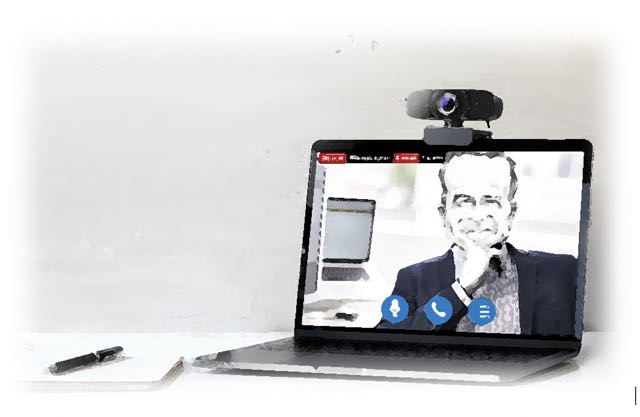Keeping Children Safe During COVID-19

By Clint Campion of Sedor, Wendlandt, Evans & Filippi, LLC
Part seven of a series on Technology and the Law.
In the past months, Alaska schools have transitioned from our traditional educational model in brick and mortar classrooms to a 21st century model of students connecting with educators through online video platforms. This transition occurred suddenly and without an opportunity to prepare. Parents, guardians, educators and school board members must consider student safety in this new educational environment.
Most school boards have policies that prohibit cyberbullying, which should be reviewed and if necessary, revised. These policies prohibit the misuse of technology to threaten, harass, intimidate, or bully. School district employees are responsible for their use of district technology, whether it is accessed on or off campus, during or after school hours. Cyberbullying policies should extend to cyberbullying from a private (non-school) computer or other electronic devices.
While the vast majority of Alaska’s educators and staff use technology appropriately, there are, unfortunately, exceptions. A recent story involving a principal in a rural school district provides an example of the potential risks of increased communications between educators and students.
As districts consider the expanded use of online education for the 2020-21 school year, there are some basic safety protocols that should also be considered to protect students and to provide transparency. First, districts should consider requiring educators to always cc a parent or guardian in any electronic communication with a student. Second, sessions should be scheduled only during regular school hours. Third, districts should encourage parents and guardians to place students in an open space to prevent violations of student’s privacy during group or individual sessions. Fourth, a written record of lesson plans for online sessions should be maintained. Fifth, parents, guardians and students should be reminded that any inappropriate conduct that occurs during online sessions should be reported to school administrators or to OCS/law enforcement.
Even in an online educational world, school districts need to remind educators and school administrators of their obligation to immediately report to OCS or law enforcement if they have reasonable cause to suspect that a child has suffered harm as a result of child abuse or neglect. See Alaska Statute 47.17.020. Teachers interacting with students during online sessions may be the only person outside of the home in a position to observe indicia of neglect or abuse.
The Professional Teaching Practices Commission has clarified its definition of prohibited “sexual conduct” for educators in their interactions with students or former students. Prohibited sexual conduct includes flirting, explicit sexual jokes and stories, sexual teasing, sexual innuendos, engaging in electronic sexual communication, discussion of sexual feelings or activities of the educator or the student, and physical or sexual relationships with students. Increased online contact between educators and students increases the potential risks of school district employees of engaging in prohibited sexual conduct.
In anticipation of the upcoming school year, districts should remind teachers, staff, parents, guardians, and students of the applicable online codes of conduct and their responsibilities. If district employees become aware of prohibited sexual conduct, it must be reported to OCS or law enforcement. School administrators are required to act promptly in response to protect students from further harm.
Whenever we return to the “new normal,” the delivery of education will likely be forever changed. School districts must be vigilant to ensure that students are protected from harm within video conferencing and other online platforms.
More from Sedor, Wendlandt, Evans & Filippi, LLC:
- Seven-part series: Technology and the law
- Eight-part series: Interacting with the world outside of the school
- Five-part series: Union Issues in Schools
- Four-part series: Freedom of Expression in Schools
# # #
The views expressed here are the writer’s and are not necessarily endorsed by the Association of Alaska School Boards. AASB welcomes diverse perspectives and civil discourse. To submit a Guest Column for consideration, see our Guest Column Guidelines and email your 400-1000 word submission HERE.
